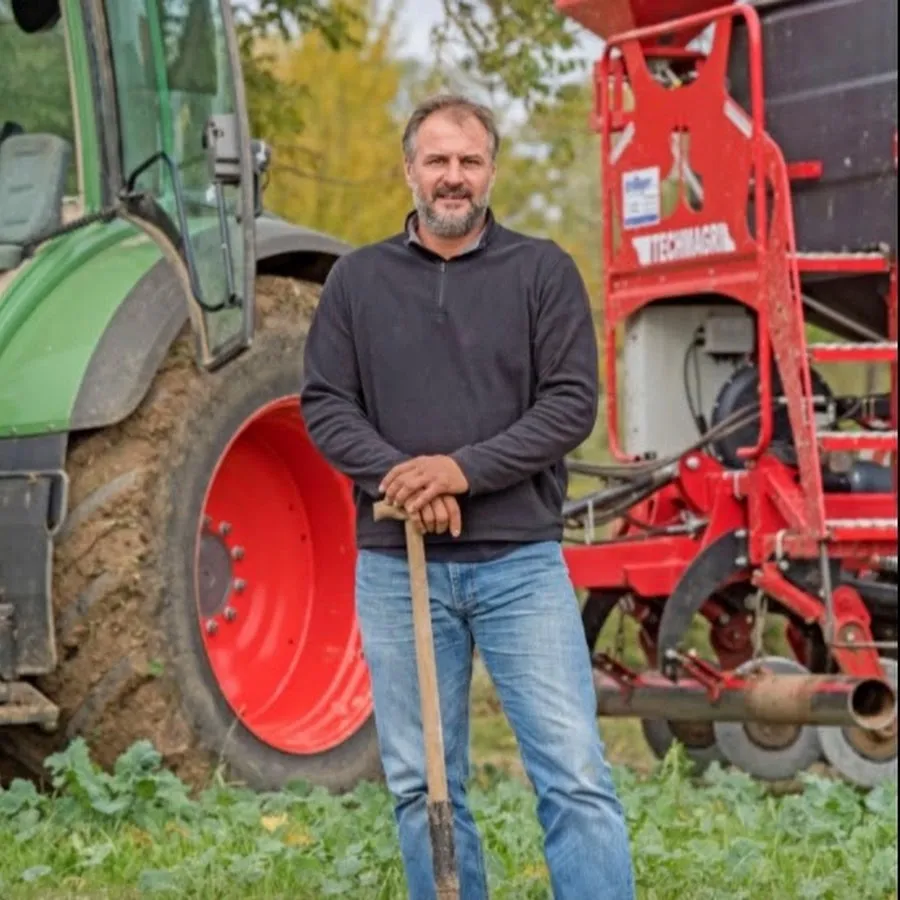Arable farmer in the Aube region, pioneer in regenerative farming for more than 15 years and in transition to organic farming since 2021.
Discover our programme

When Fabien joined the Soil Capital program in 2021, his first carbon footprint revealed that his soils were already carbon stores, meaning that his farming practices were leading to more carbon storage than CO2 equivalent emissions. His Soil Capital agronomist enabled him to identify avenues for improvement and to bring his sustainable agricultural practices a step further.
After harvest 2021, his carbon assessment led to a total net storage of 171 t CO2 e. (0.59 CO2 e/ ha), worth a total remuneration of 6,100€ (excl. the 20% of certificates put into the buffer).
In 2022, after his second carbon assessment, Fabien stored 171 tonnes of carbon, i.e. 0.59 tCO2 e. / ha, worth a total remuneration of €6,100.
This year, Fabien was paid €9,300 (+52%) for a net storage of 352 tonnes of carbon or 1.23 tCO2 e. / ha.
After 3 years being part of our carbon programme, here are some key takeaways from Fabien’s farming system.
When he took over the family farm management 20 years ago, Fabien decided to innovate quickly by transitioning towards regenerative agriculture. He specialized himself in minimum and no till, cover crops and companion crop implementation.
In 2021, he transitioned towards organic farming and capitalize today on all his regenerative practices not only by minimizing his operational costs but also via the carbon stored in his soils. The carbon remuneration enables him to anticipate the disappearance of the organic premium, which will end in 2024.





Get to know more aboutwhat we do and how we put farmers first!
Contact us!